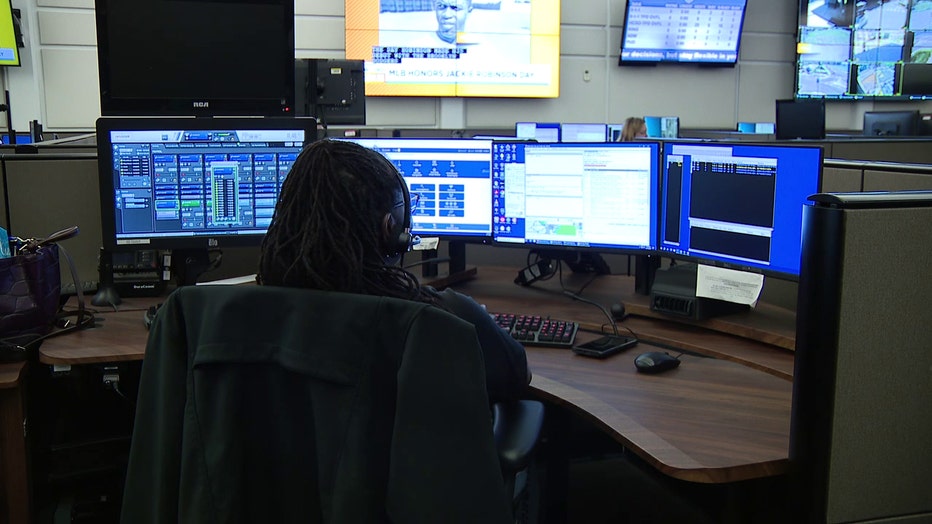Tampa police, Crisis Center partner to launch crisis intervention dispatch program

TPD partnering with Crisis Center
The Tampa Police Department is teaming up with the Crisis Center of Tampa Bay, launching a Crisis Intervention Dispatch Service Program.
TAMPA, Fla. - When someone calls 911, it can be the most difficult call they have to make.
Some calls to 911 involve someone having a mental health crisis, and they need resources that law enforcement officers, alone, cannot always provide.
"Everyone's worst day comes in as a 911 call," said Richard Parsons, the Tampa Police Department's communications supervisor. "And, these people in here are the first, first responders."
READ: Crisis Center of Tampa Bay helps install signs on Sunshine Skyway: 'Reach out for help'
TPD is partnering with The Crisis Center of Tampa Bay to launch a crisis intervention dispatch service program.
"We're not equipped to a level that is high enough to give the folks the service that they need who are dealing with mental health issues," TPD Deputy Chief Calvin Johnson said.
If someone who is having a mental health crisis calls 911, their call can immediately be transferred to a trained intervention specialist, who is sitting alongside dispatchers.
"This is like a dream come true for us," Clara Reynolds, the CEO of the Crisis Center, said. "We recognize that anywhere between 60% and 70% of calls that come in to 911 have a behavioral health overlay."
MORE: Anxiety tops mental health concerns for employees
Dispatchers cannot always get all the background information about a person or a situation, especially a mental health crisis, within 30 seconds.

"Those calls are probably the hardest calls that we take," Parsons said. "There's a lot going on. Typically, those people need resources."
Instead of immediately dispatching an officer to a situation where someone is in a mental health crisis, an intervention specialist can talk with them and help determine what specific resources that person needs.
"When you're getting out there, you're trying to figure out what you have, what you're dealing with," Johnson said. "That can be time-consuming, because while that call's going on, people are still calling 911."
According to the City of Tampa’s service call grid, TPD gets thousands of calls a week. Johnson said sometimes, officers will have to prioritize calls and make decisions to respond to one call versus another.
READ: Teens turning to TikTok to self-diagnose mental health issues
This program is designed to help officers respond to calls that they’re desperately needed at, and give callers more specialized help, without them having to wait.
"When we can get involved with an individual who is in crisis, that 97% of the time, we can de-escalate that individual and get them to safety without having to involve law enforcement," Reynolds said.
The Crisis Center and TPD are hoping to have the program up and running by July.
"We’ll be able to take the time with the individual, really be able to hear, not just what's the symptom that is the reason they're calling 911, but also, really what is the underlying problem, so that we can help them get to a solution," Reynolds said. "And ideally, if we have de-escalated the individual, even if law enforcement still needs to come out, it will be a much different outcome than if that person stays in that heightened, elevated place."
There will be six trained intervention specialists and an additional supervisor, who will all work in the TPD dispatch center. Reynolds said the funding for this program is coming from a federal grant from the Department of Justice.
WATCH FOX 13 NEWS:
SIGN UP: Click here to sign up for the FOX 13 daily newsletter

